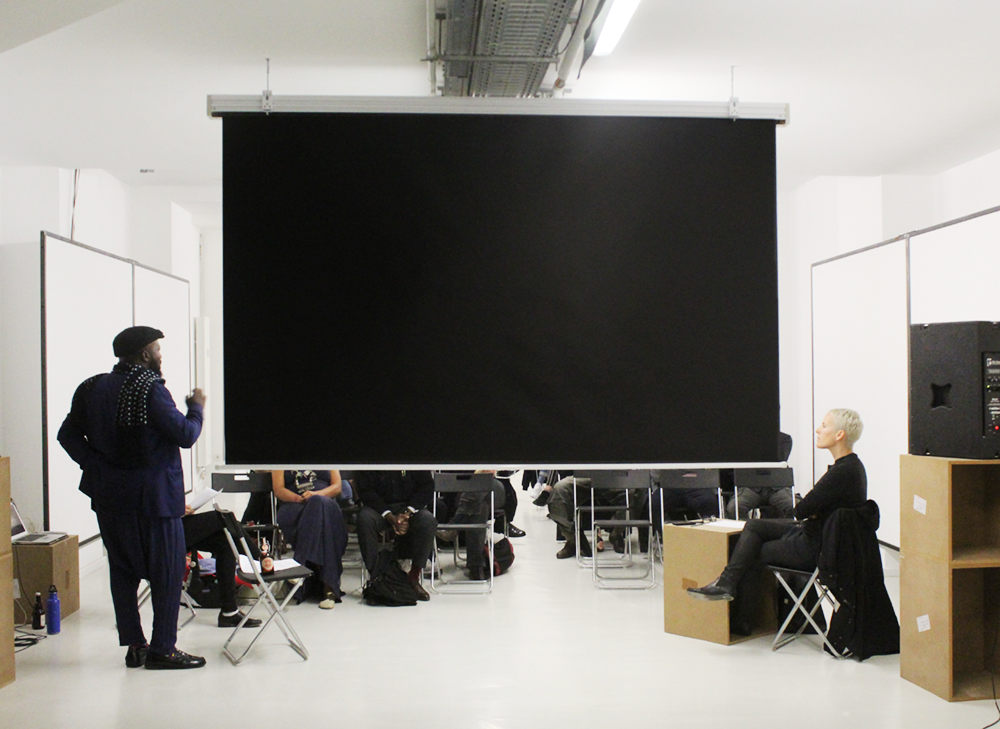A Collective Memory
How does the world breathe now?
Session N°9 23.11.2016 19:00
With Azin Feizabadi
film The Night It Rained 1967 38 minutes
by Kamran Shirdel
Language Farsi with English subtitles
film First Case, Second Case 1979–1982 47 minutes
by Abbas Kiarostami
Language Farsi with English subtitles
What form of historiography can embody a “truth” that is non-scientific and so non-ideological? What form of historiography can emancipate the “event” from becoming fixed, archived and its narrative institutionally instrumentalized? Like the same as happened to the disputed modern and contemporary history of Iran! Or with the absent migration history of Germany! What is the task of the historiographer? How can historiography record and report "das Wesentliche" of an event? How dependent is historiography from linear time?
To speak to these questions, Azin Feizabadi will perform a reading, present various archival clips, and show and discuss with the audience two short films: The Night It Rained (by Kamran Shirdel) and First Case, SecondCase (by Abbas Kiarostami). The evening’s materials are part of Feizabadi’s research and work on A Collective Memory (2009–ongoing).
The Night It Rained
In northern Iran, a schoolboy from a village near Gorgan is said to have discovered that the railway had been undermined and washed away by a flood. As the story goes, when he saw the approaching train, he set fire to his jacket, ran towards the train and averted a serious and fatal accident. Shirdel’s film does not concentrate on the heroic deed promulgated in the newspapers, but on a caricature of social and subtle political behavior – the way in which witnesses and officials manage to insert themselves into the research into this event. Shirdel uses newspaper articles and interviews with railway employees, the governor, the chief of police, the village teacher and pupils, each of whom tell a different version of the event. In the end, they all contradict each other, while the group of possible or self-appointed heroes constantly grows. With his cinematic sleights of hand, Shirdel paints a bittersweet picture of Iranian Society in which truth, rumor, and lie can no longer be distinguished. After completion the film was harshly banned and confiscated, and Shirdel was expelled from the Ministry. It was released seven years later in 1974 to participate in the Third Tehran International Film Festival, where it won the Grand Prix by a unanimous vote, only to be banned again until after the revolution.
First Case, Second Case
The film starts with this scenario: A teacher is drawing a diagram of an ear on the chalkboard with his back to the class; he is interrupted several times by the sound of a pen banging rhythmically against a desk. Each time when the teacher turns around, the noise stops, only to resume again. Finally, unable to pick out the culprit, the teacher tells the seven boys sitting in the corner of the room to leave the class. The students are given an ultimatum, which becomes the basis of First Case, Second Case. Kiarostami screened this film to the Shah’s educational experts and filmed their opinions in 1979. Shooting was nearly complete when, on February 1, Ayatollah Khomeini arrived in Tehran from exile and ten days later declared an Islamic republic. In 1981 Kiarostami set about remaking the film, junking the commentaries and changing the structure of the film. The film was banned after its premier in Tehran and disappeared from view for decades until June 2009 when it reappeared and became widely distributed on the web.
Azin Feizabadi is a filmmaker and visual artist living and working in Berlin. As part of A Collective Memory Feizabadi has written and directed a series of films and video works, among them: the feature film Cryptomnesia (2014), the mid-length film Conference of the Birds (2011) and the short film The Negotiation (2010/together with Kaya Behkalam).

